HomeBlogEventsLaunch PadProgramStudentsWestern SydneyWestern Sydney UniversityLunch and Learn – Ways to Fund Your Startup
Lunch and Learn – Ways to Fund Your Startup
Ways to Fund Your Startup
Women and multicultural program workshop - November (ONLINE)
For our last Women and Multicultural Workshop of the year, we went out with a bang! Over 60 participants virtually attended our first online workshop, discussing several methods to raise capital, types of investors and other funding opportunities.
Lucy Lin, the Women and Multicultural Program Lead and Entrepreneur in Residence helped facilitate the zoom session alongside three amazing panel members, (Maria Haiazs, Simba Marekera and Daniel Veytsvblit) from different sectors of investment.
After a ‘Welcome to Country’ and quick introduction, Lucy kicked off the interactive session with pre-workshop questions and polls to help identify the biggest funding challenges our participants have faced.
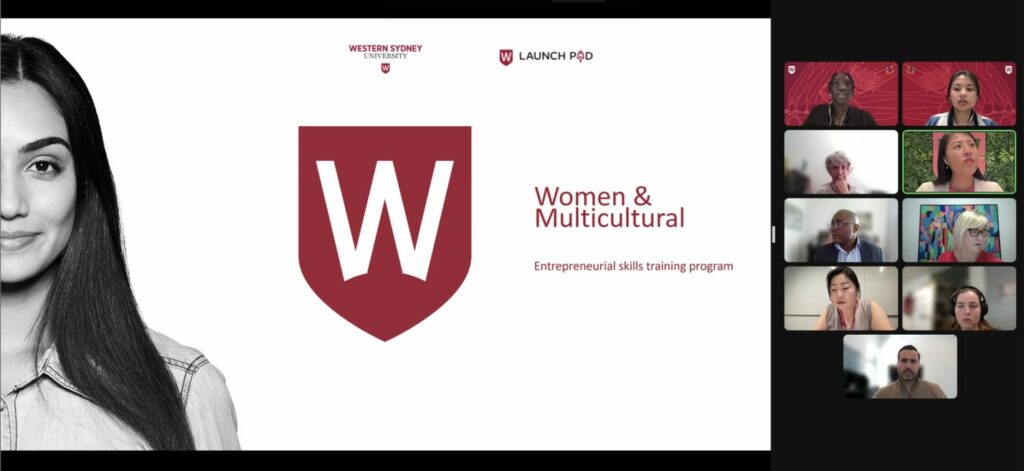
Three Obstacles Identified When Funding Your Startup
- Lack of access to investors or finance
- Not knowing where to start
- Startup being too early for VC or external investments
After getting a feel of where participants stood, Lucy one by one introduced the panel speakers, weighing in on their unique experience as a linguistically diverse investor and how they are making change to startups within the community.
Maria Halazs - (Crowdfunding Investor)
Coming to Australia 37 years ago with only $50 dollars in her pocket, Maria exemplifies the resilience and determination needed for success.
With nearly three decades of experience and over 100 companies under her belt, Maria emphasises that crowdfunding is a growing avenue in Australia. She also sheds light on the importance of due diligence and ensuring companies which seek funding are set up for success.
Daniel Veytsblit (Migrant Investor)
Daniel’s story from social housing to successful entrepreneur and investor resonates with many migrants navigating the startup landscape Born in Ukraine, he started his first company when he was 26 and has invested in over 60 companies and early-stage founders.
Simba Marekera (Impact Investor)
Hailing from Zimbabwe, Simba shares his inspiring journey as an investor from Yale University and beyond.
For over 15 years, he has focused on investing in businesses in Australia with a social impact. He challenges entrepreneurs to consider the broader implications of their ventures on individuals and the community beyond mere financial gain.



By reflecting on their unique experiences as investors, the panel discussed important attributes that a startup must possess in order to be investment ready. These considerations include;
- Be VERY careful with family and friend sources of funding. Being transparent about your funds and what they can expect from their investments is crucial.
- Boot-strapping your business as far as you can ensures you are making the most of your funding. Being aware of what is around you are making use of invaluable and free advice from your networks will help your startup flourish.
- Having previous validation on the market, strategic partners or an audience for your product helps increase the attractiveness and validation of the investment proposal
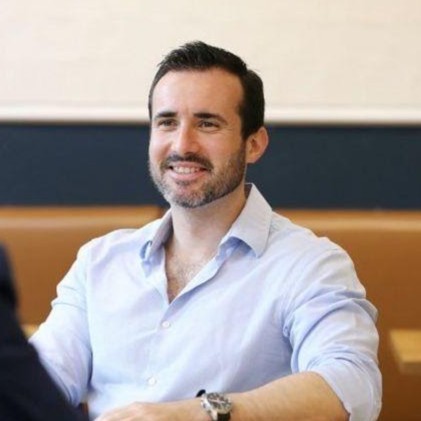

Next, the panel reflected on their career challenges and how they were able to overcome them to come out on top.
As a woman, Maria expressed the issues she had faced in the investment space and how she was able to find strength in turning those challenges to her advantage. She went further on to explain that finding genuine connections amongst her wider network and building those relationships were crucial to feeling supported.
Alongside this point, Daniel relayed common advice within the investment industry, recommending startups build relationships from 6 to 12 months prior to raising capital but did not shy away from the fact that it may not be necessary from some.
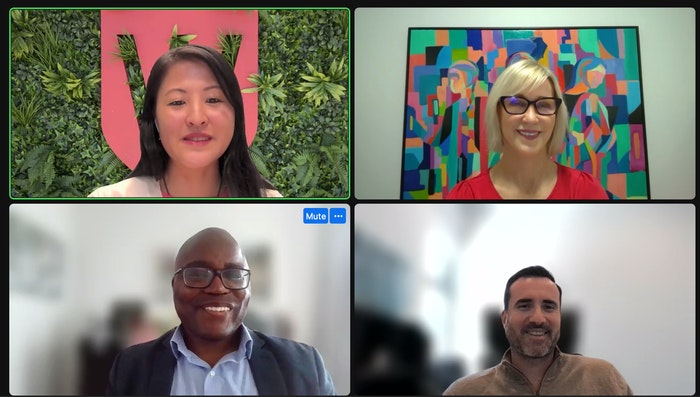

Shortly after the panel, breakout rooms were created to facilitated deeper learning on the topic. Participants were given the freedom and encouraged to visit the speakers or area of funding they were interested in.
Each session took the format of a Q&A where individuals were able to ask their burning questions in relation to their own startups.
Maria Halazs - (Crowdfunding Investor)
“The most successful crowdfunding campaigns already have an audience they can tap into”
Maria states that if you are not wanting to raise capital you can look into platforms which are not equity driven but crowd sourced
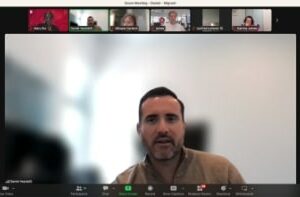
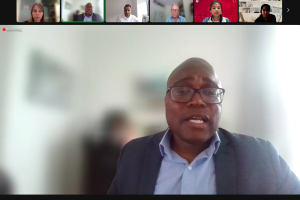
Simba Marekera (Impact Investor)
“What is the problem you are trying to solve and why are you the best person for this opportunity?”
Simba frequently mentioned to his breakout room that investors are looking for profit and impact in startups at the same time. By strategically talking to different investors, you are creating options for yourself
Daniel Veytsblit (Migrant Investor)
“If you are seeking something more than money from an investor, you need to be comfortable that they are going to provide something other than money”
Daniel encouraged individuals in his breakout room to speak to startups which the investor had funded previously and what their experience was like being in the investor’s portfolio
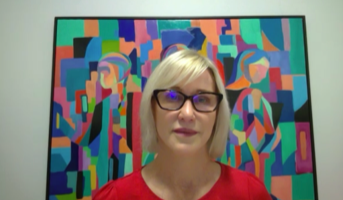
Key Takeaways from the Workshop
- Knowing your story and who is in the best position to drive the narrative you want to tell can increase your chances of success.
- Building investor relations takes up to 6 months to a year beforehand. Taking investors on your startup journey will help make your venture attractive.
- Choosing the right investor is critical to future success.
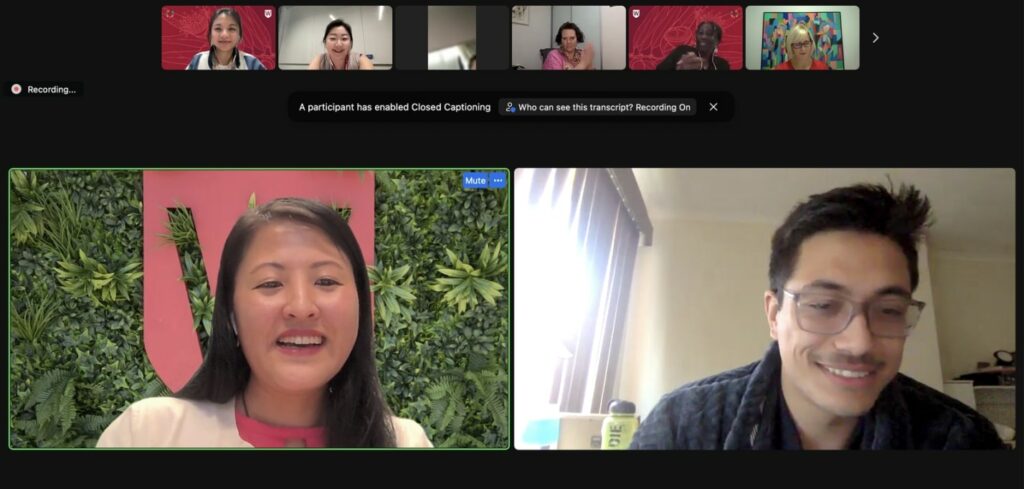
The event ended with the announcement of the $250 lucky door prize winner, courtesy of JD Sports Australia, which went to Sajit Gurubacharya who had the best advice for seeking funding:
We would like to extend our gratitude to all our panel members and their insights.
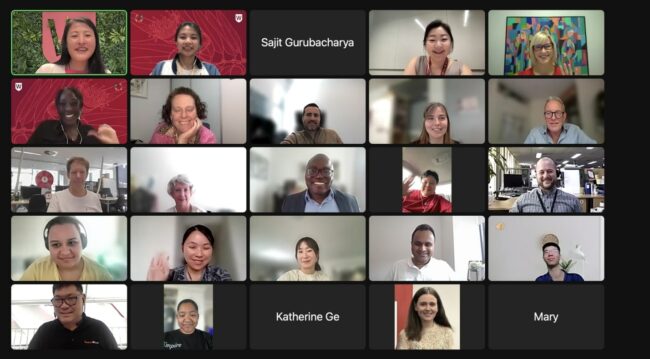
Learn more about the Women & Multicultural Program below.